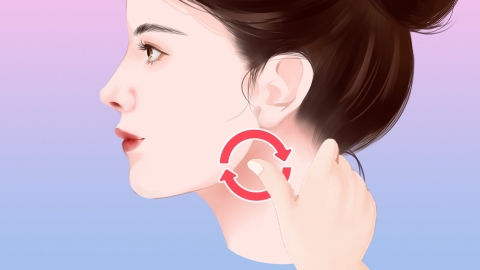What is the cause of hyperplasia of thyroid follicular epithelial cells?
Normally, hyperplasia of thyroid follicular epithelial cells may be caused by abnormal iodine intake, excessive mental stress, thyroiditis, hyperthyroidism, thyroid nodules, and other factors. If discomfort symptoms occur, it is recommended to seek timely medical treatment at a qualified hospital. Detailed explanations are as follows:
1. Abnormal Iodine Intake
Long-term excessive or insufficient iodine intake can affect thyroid hormone synthesis, leading to compensatory hyperplasia of thyroid follicular epithelial cells in response to hormone production demands. It is important to control iodine intake reasonably and adjust the diet according to individual conditions—for example, residents in iodine-deficient areas can appropriately consume iodized salt.
2. Excessive Mental Stress
Remaining in a state of high pressure, anxiety, or tension over a long period can affect the regulatory function of the hypothalamic-pituitary-thyroid axis, interfere with thyroid hormone secretion, and trigger hyperplasia of thyroid follicular epithelial cells. Learning to manage emotions through meditation, yoga, travel, and other methods can help relieve stress and maintain emotional stability.

3. Thyroiditis
When thyroiditis is caused by viral or bacterial infection, the thyroid tissue is stimulated by inflammation, leading to reactive hyperplasia of thyroid follicular epithelial cells. If it is viral thyroiditis, antipyretic and analgesic medications such as enteric-coated aspirin tablets, ibuprofen sustained-release capsules, or acetaminophen tablets may be used under medical guidance to alleviate symptoms.
In cases of hyperthyroidism, elevated thyroid hormone levels cause the thyroid follicular epithelial cells to proliferate more rapidly to synthesize additional thyroid hormones to maintain normal hormone concentrations. Typical symptoms include palpitations, excessive sweating, weight loss, and other signs of increased metabolism. Patients should follow medical advice and take antithyroid medications such as methimazole tablets, propylthiouracil tablets, or Jiakangling tablets to inhibit thyroid hormone synthesis and relieve symptoms.
5. Thyroid Nodules
Some thyroid nodules are accompanied by follicular epithelial cell hyperplasia, and the hyperplasia may become more pronounced as the nodule grows. Regular thyroid ultrasound examinations are recommended to monitor changes in nodule size and cellular hyperplasia. If the nodule is small and asymptomatic, observation may be appropriate. If the nodule is large or hyperplasia is significant, treatment should be administered under medical evaluation, such as radioactive iodine therapy, or surgical treatment when necessary, following medical advice.
In daily life, it is important to maintain a regular routine and avoid staying up late; engage in moderate physical exercise, such as jogging or swimming, to enhance immune function; and maintain a balanced diet without picky eating habits.









